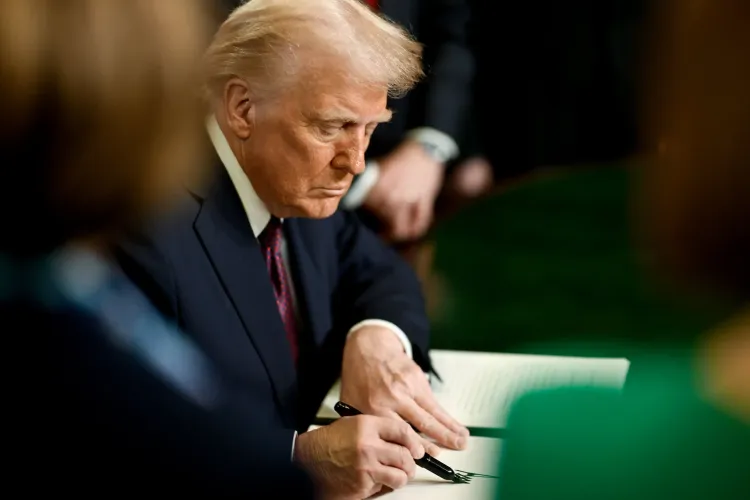Is US Tariff Policy Undermining Strategic Ties with India?

Synopsis
Key Takeaways
- US tariffs threaten strategic partnership with India.
- Cooperation is more beneficial than coercion.
- India's energy reliance is driven by economic needs.
- Enhanced partnerships can stabilize geopolitical dynamics.
- Choosing partnership strengthens US leadership.
Washington, Sep 12 (NationPress) The United States has identified India as a “central pillar” of its Indo-Pacific strategy, a fellow democracy, a critical counterbalance to China, and a bridge to the Global South. However, the tariff policies enacted by Washington are undermining these very goals, according to a report released on Friday.
Rather than employing coercion, the report suggests that Washington should implement policies that position cooperation with the US as the most advantageous route for India.
“The United States should not anticipate India aligning entirely with Western viewpoints. It should focus on ensuring that when India seeks balance, it does so in favor of the United States rather than against it. This requires incentives, not punitive measures. It also entails acknowledging that India will engage in multiple partnerships concurrently, including with Europe, Japan, and the Global South. Washington’s role is not to demand exclusivity but to make collaboration with the United States the most appealing choice,” detailed the report in ‘The National Interest’.
The report further indicated that punitive tariffs will not alter India’s energy decisions nor hasten the resolution of the war in Ukraine. Instead, these tariffs threaten to diminish one of America’s most crucial strategic alliances, potentially nudging New Delhi closer to Moscow and Beijing at a time when Washington's strategy calls for the opposite.
“For the United States to maintain its global leadership, it must avoid forcing India into such alignments. Instead, Washington should aim to firmly anchor India within its strategic sphere—through energy partnerships, technology collaborations, trade agreements, and mutual respect. The way forward is not through punishment, but through partnership,” emphasized the report.
“India’s dependence on Russian oil is driven by domestic economic necessities, not a desire to oppose US policies. Discounted Russian crude has constituted over one-third of India’s oil imports, saving New Delhi billions of dollars annually and keeping fuel prices manageable for its 1.4 billion citizens. An abrupt halt could create an $11 billion shock—an overwhelming burden for any Indian administration,” it added.
The report underscored that the US faces a pivotal decision: continue utilizing tariffs and coercion, hoping to force India into compliance, or recognize the futility of this approach and instead focus on forging enduring agreements that align with the interests of both nations.
“In a time of shifting global dynamics and emerging alliances, Washington cannot afford to alienate one of its most crucial allies. Opting for punishment risks driving India toward Beijing and Moscow, complicating efforts to resolve the war in Ukraine and destabilizing the Indo-Pacific region. Choosing partnership, however, can reinforce US leadership, stabilize the global order, and secure a future where democracy and prosperity coexist,” the report concluded.










